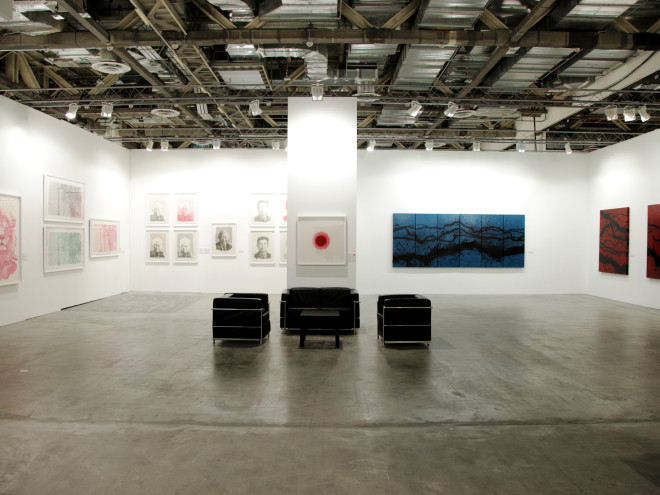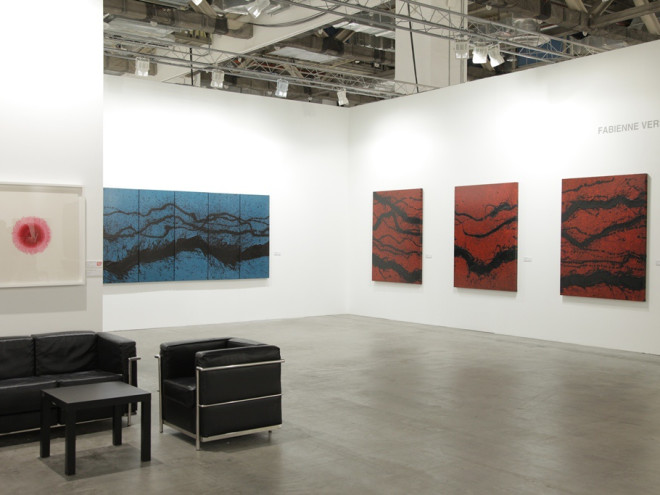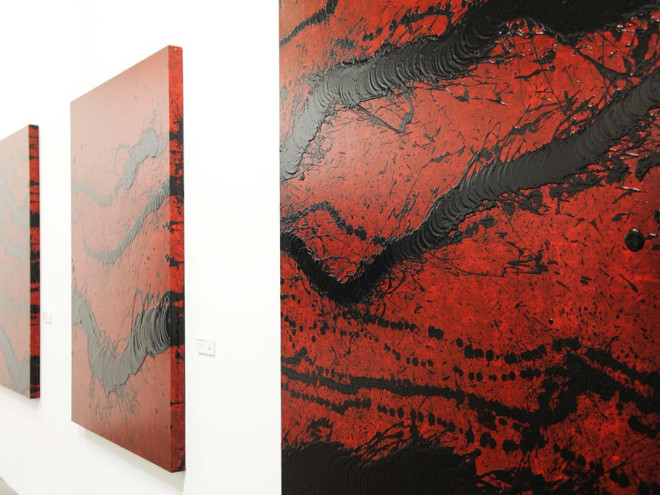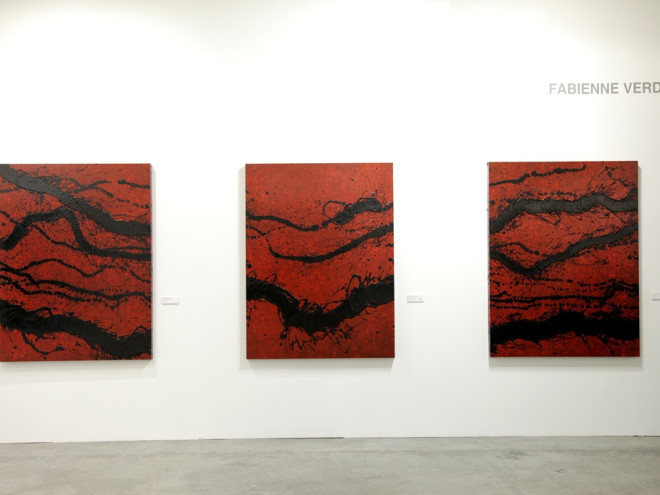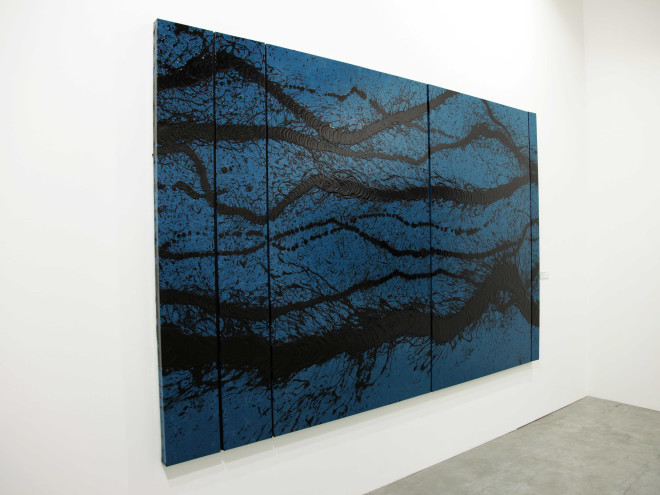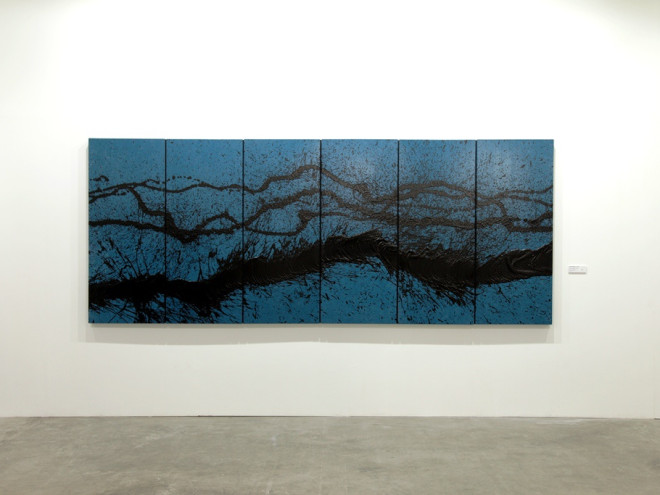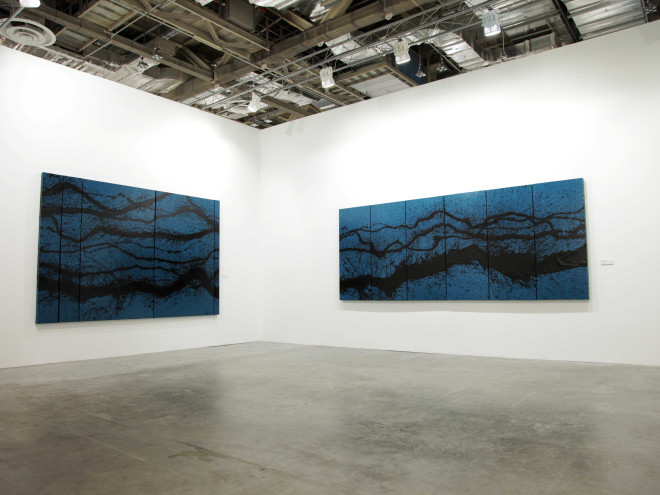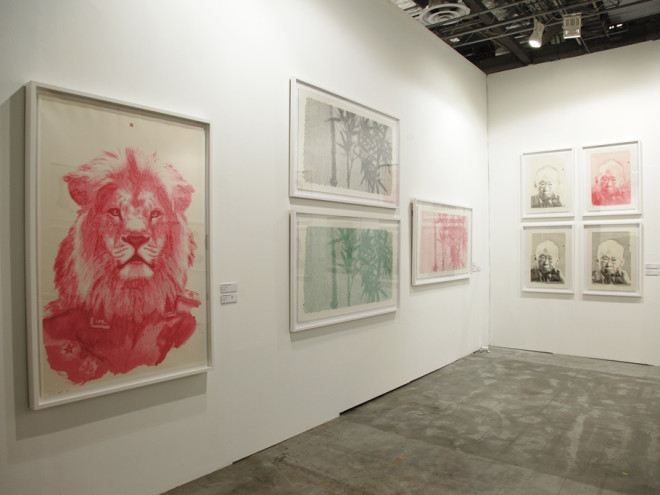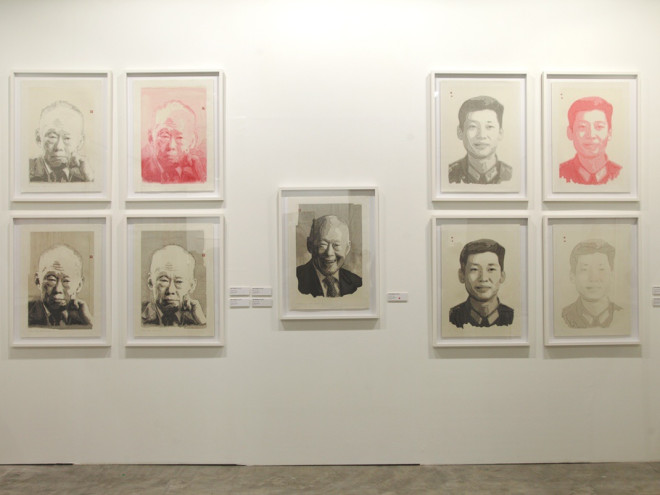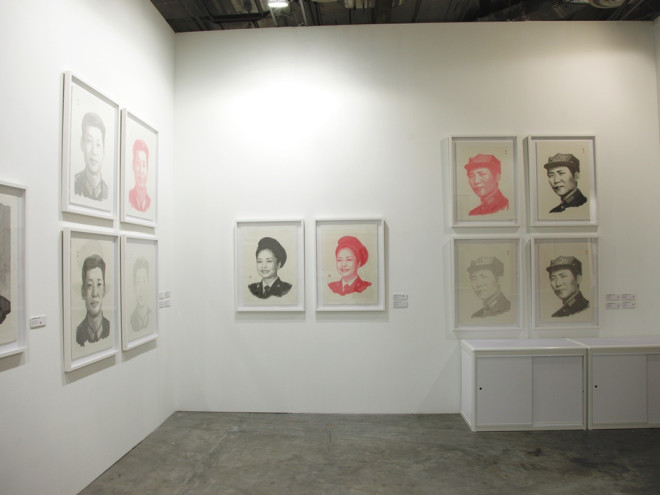At Art Stage Singapore 2015 Booth C13, Art Plural Gallery presented the solo exhibitions of French artist Fabienne Verdier and Chinese ink artist Nan Qi. These exhibitions unveiled 5 significant new paintings by Fabienne Verdier, who created them especially for the occasion, and 20 intricate ink drawings by Nan Qi.
Born in Paris in 1962, Fabienne Verdier is an internationally celebrated artist who bridges the dialogue between Eastern and Western artistic traditions. In fact, she is one of the very few Western artists to have mastered traditional Chinese ink painting. Having spent 10 years studying traditional ink painting under a Chinese master in Chongqing, China, Verdier has since created an iconic pictorial language that merges these traditional painting techniques with influences from Western art history. Working standing up, Verdier uses a giant suspended animal-hair brush, not unlike the calligrapher’s vertical brush that links heaven and earth, to create her works. The process is both meditative and performative; as Verdier moves with the brush, she responds to the forces around her, transmitting these universal truths and energy into her work at the point of equilibrium.
Chinese artist Nan Qi’s bold ink portraits reflect the role of political power in dictating China’s contemporary society. Born in the Zhejiang Province in 1960, Nan Qi’s experience of the Cultural Revolution was complicated by his early involvement and training in the Army of Communist China. Reflecting on his conflicted beliefs, stoic portraits of young Mao Zedong and young Xi Jinping rendered in varying degrees of painted opacity gaze just beyond the viewer, focused on the world they see beyond. With the lightening of the ink comes a gradual sense of uncertainty, questioning the strength of the portrait and what it stands for. However, one figure stays true; the front-facing lion stares down at the viewer with an unwavering gaze, dressed in powerful red and standing tall as the ideal of power. Nan Qiposes the question that more and more are beginning to ask: is power an award given from others or does the strongest power come from within?
